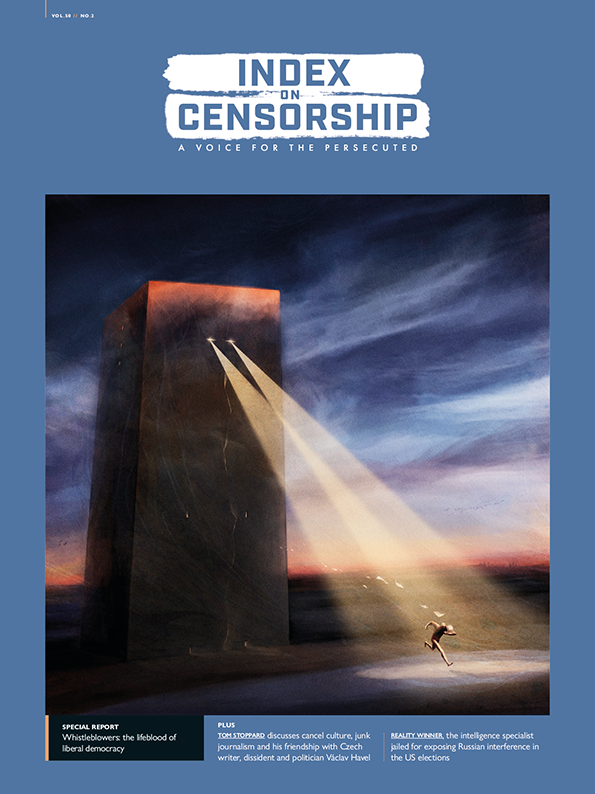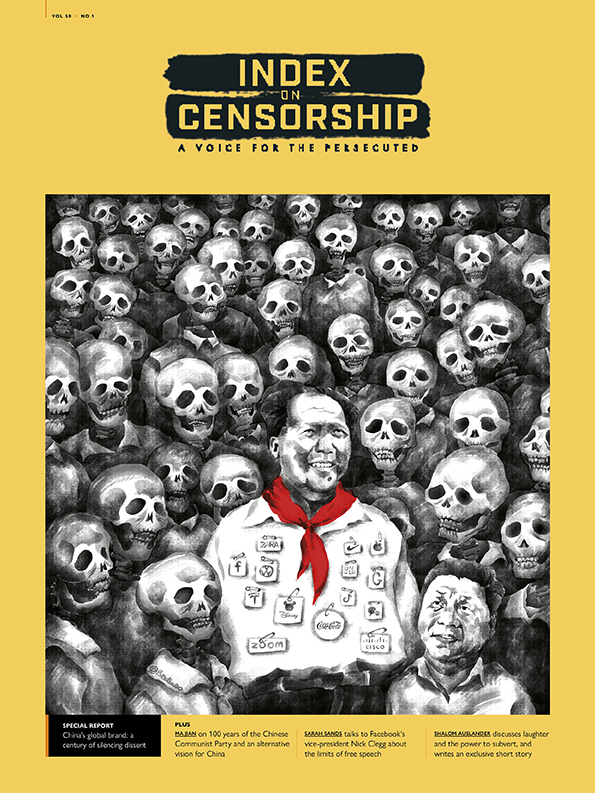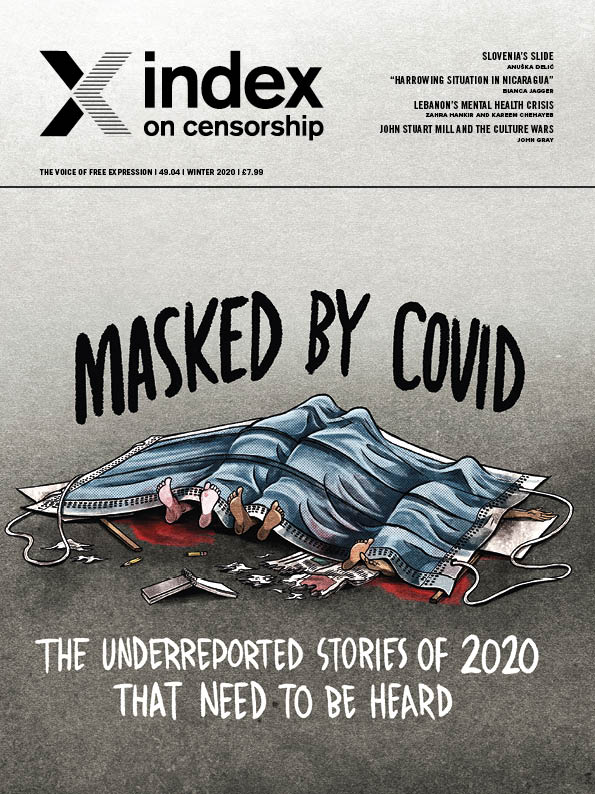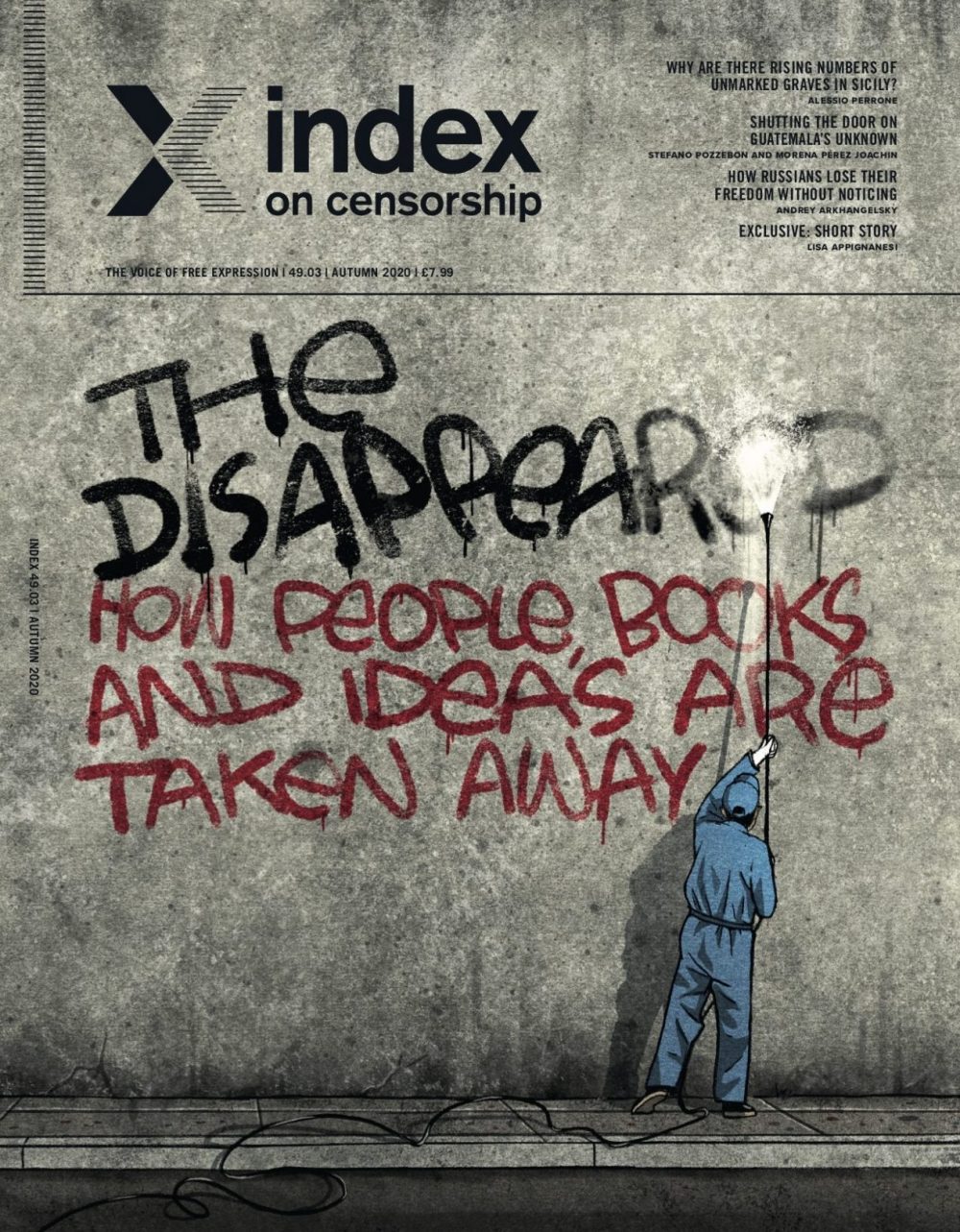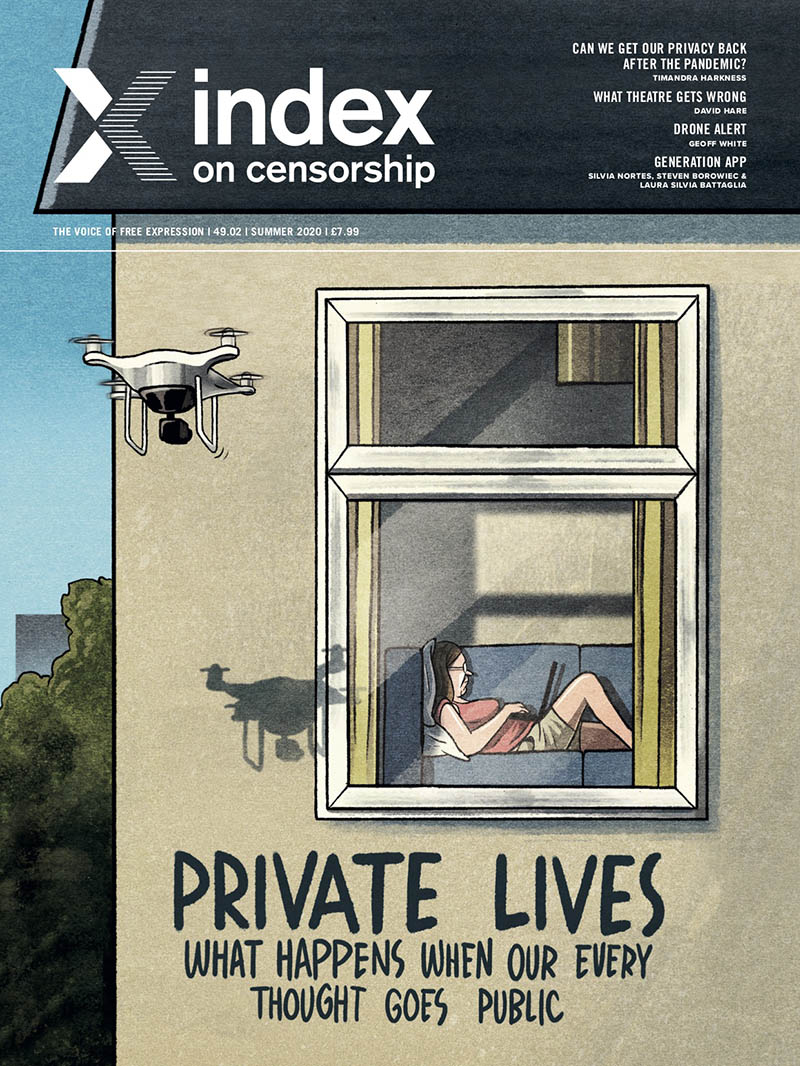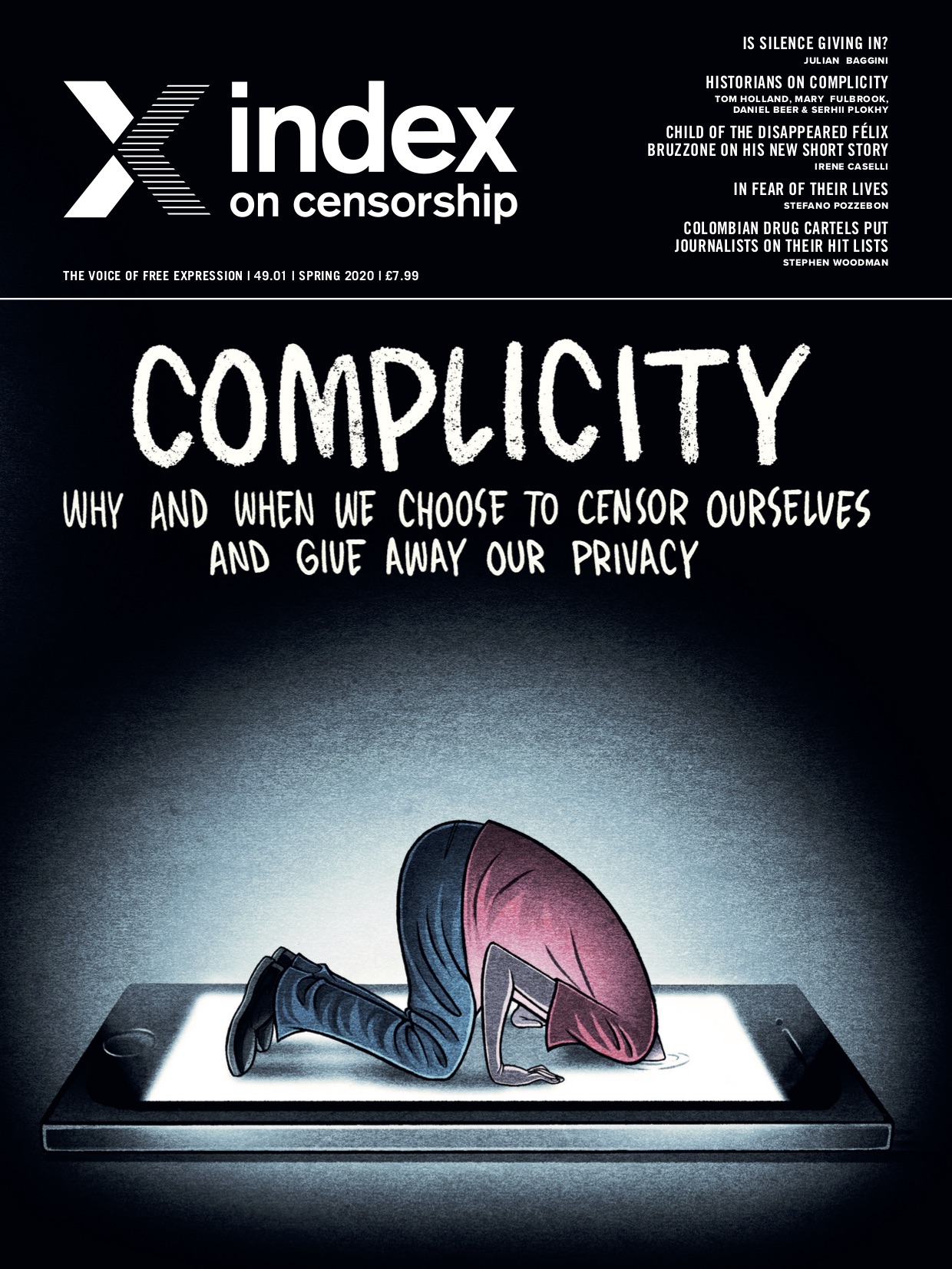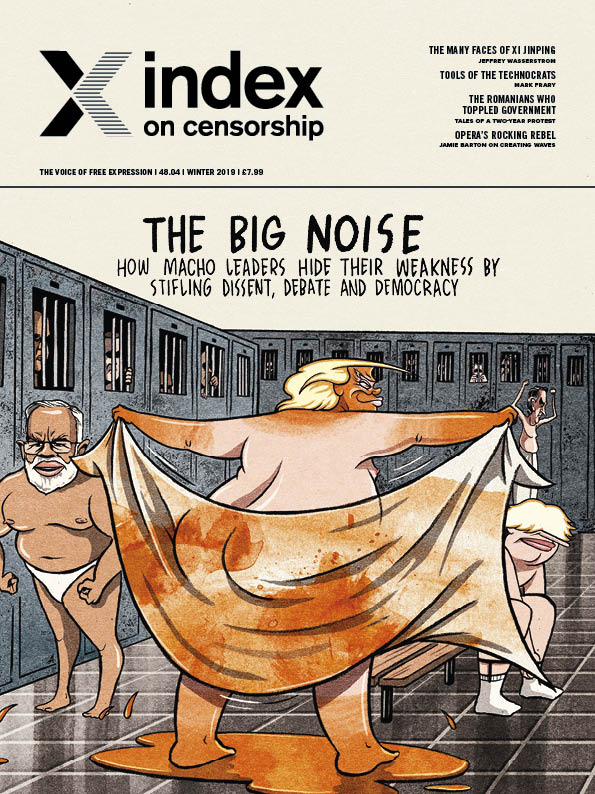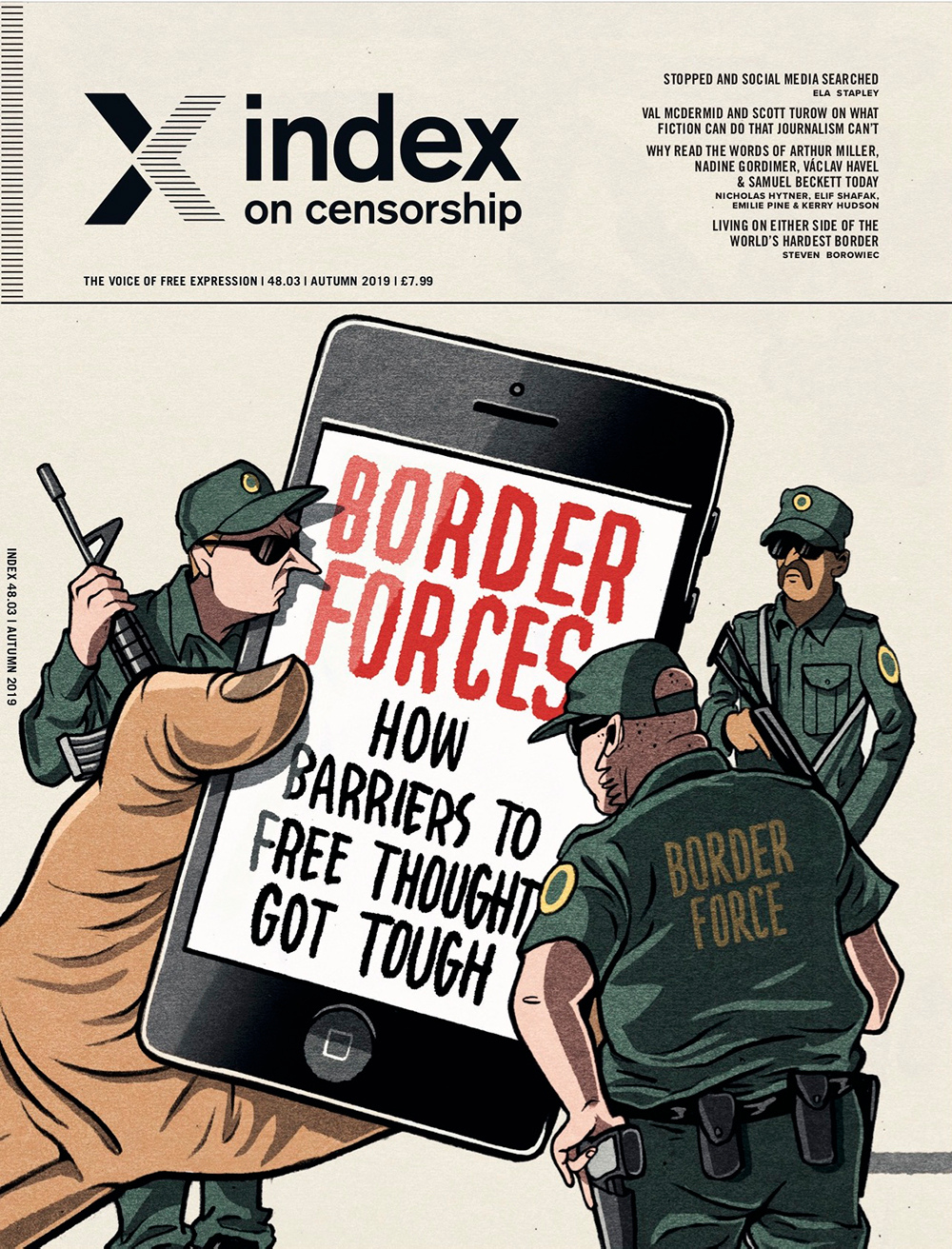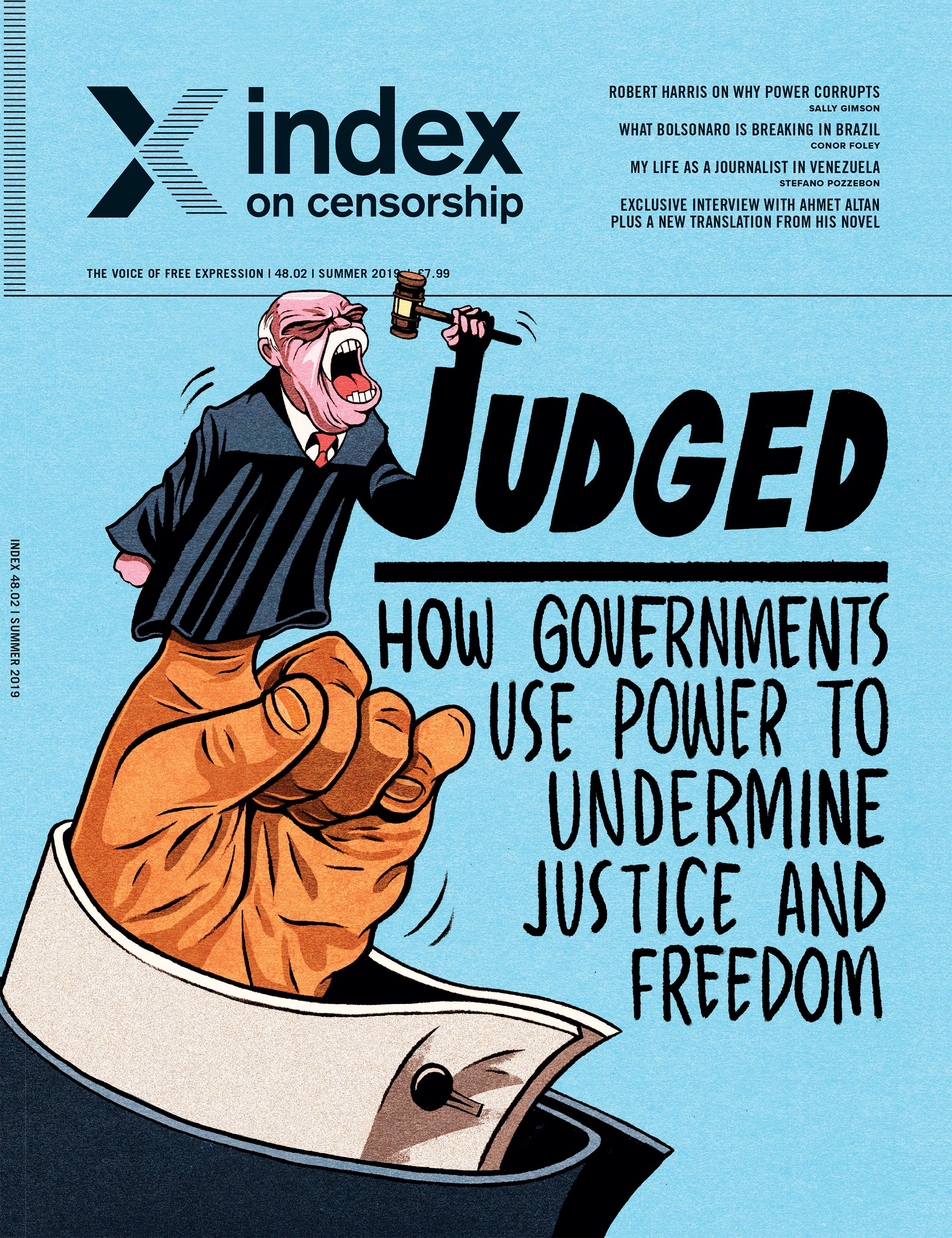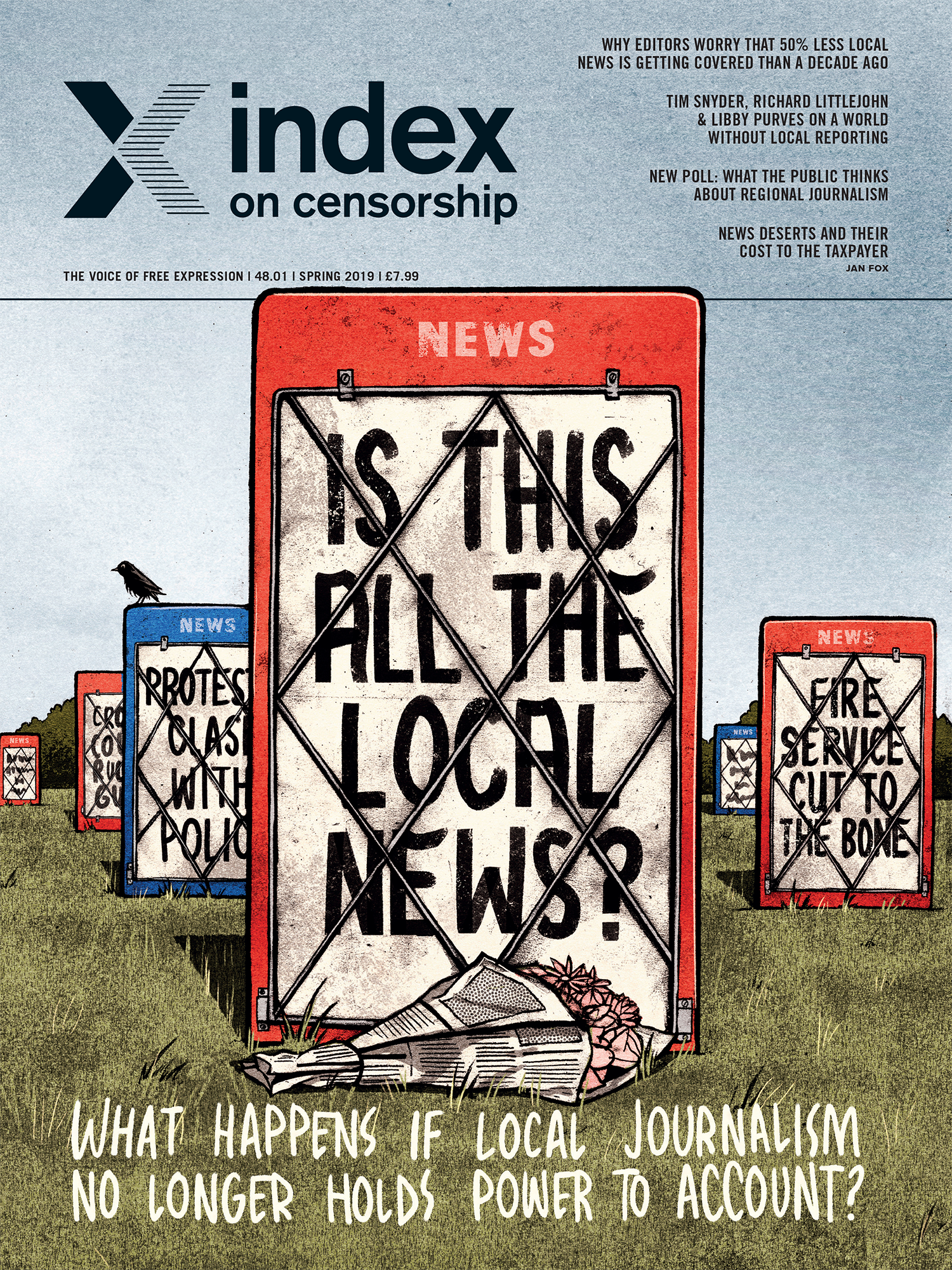Volume 50.02 Summer 2021
CATEGORY: Magazine Editions
China: A century of silencing dissent
Volume 50.01 Spring 2021
Masked by Covid
Volume 49.03 Autumn 2020
The Disappeared
Volume 49.03 Autumn 2020
Private lives
ust how much of our privacy might we give away – accidentally, on purpose or through force – in the battle against Covid-19? This is the question we pose in the Index on Censorship summer 2020 magazine. Tech journalist Geoff White looks at how drones are hovering overhead around the world, from China to the UK, to make sure we are abiding by quarantine and physical distancing. Just how up close and personal can they get? Less technical but just as sinister, Issa Sikiti da Silva reports from Uganda on government spies that are doing the same job as the drones, only they seem to be targeting political opposition. Meanwhile, people around the world are being encouraged to download contact tracing apps. That might be ok when the app has safeguarded privacy, but more often than not what is happening to data is not being spelt out, something Indian journalists are worried about in terms of their safety and that of their contacts, as Indian journalist Somak Ghoshal writes. And in the case of Colombia, Stephen Woodman highlights that the apps are easy for hackers to access. But when we’re in the home things don’t seem much better, as Adam Aiken argues in his article looking at the privacy issues that blight Zoom.
Complicity
What role do we play in our own free speech issues? This is the question we pose in the Index on Censorship spring 2020 magazine. From the journalists who self-censor and the academics who don’t stand up to their arrested colleagues to the average person who shares lots of data with a third party, we are all playing a role in giving away some of our basic rights, information and privacy. Whether we don’t realise we are doing it, we don’t have much other choice or we simply think the trade is worth making, we can be complicit in letting our own rights erode. The ways we are complicit are multiple. Noelle Mateer offers a personal account about living in Beijing under a landlord who embraced the growing trend for video cameras at home. Nathalie Rothschild introduces us to the Swedes who are willingly having microchips inserted under their skin. Is this a great way to keep your own data very, very close to you or a gateway to further data exploitation? Helen Lewis talks about how our fears to enter certain heated discussions might be making vulnerable groups more vulnerable. And Mark Frary tests out the apps to see just how much we are giving away. Elsewhere Stephen Woodman talks to Colombian journalists living in fear of drug cartels. We also publish extracts from a Brazilian documentary that was censored by Jair Bolsonaro, plus a short written exclusively for the magazine by Najwa Bin Shatwan.
The Big Noise
We are living in the age of the macho leaders. All around the world, these so called “strong men” have stormed the polls and are coming to power. They are being voted in democratically yes, but what they stand for is disastrous for democracy. Not only do they have little time for free speech, their entire image is often constructed around a very delicate type of masculinity that does not accept criticism or dissent. This is what we discuss in the winter 2019 issue of Index on Censorship magazine. In this issue Rappler news editor Miriam Grace Go writes about how the president of the Philippines, Rodrigo Duterte, tries to position himself as the man by being as foul-mouthed as possible. If you’re a critical journalist – and especially a woman journalist – you can expect vitriol from him. Indian journalist Somak Goshal reports on how Narenda Modi presents an image of being both the guy next door, as well as a tough guy – and he’s got a large following to ensure his message gets across, come what may. And Stefano Pozzebon talks to journalists in Brazil who are right in the firing line of Jair Bolsonaro’s vicious attacks on the media. Meanwhile Mark Frary talks about the tools that autocrats are using to crush dissent and Caroline Lees looks at the smears that are becoming commonplace as a tactic to silence journalists. We also publish a poem from Hong Kong writer Tammy Lai-ming Ho, which addresses the current protests engulfing the city, plus two short stories written exclusively for the magazine by Kaya Genç and Jonathan Tel. Also Rob Sears creates a handbook for the modern dictator.
Border Forces
The autumn 2019 Index on Censorship magazine examines how border officials are demanding access to individuals’ social media accounts at frontiers around the world. This is ushering in a frightening new era where people are worried that their words, their criticism and taking part in a protest will end in a travel ban. In this issue Steven Borowiec writes about the toughest border of all between North and South Korea where South Koreans can be prosecuted for communicating with relatives in the north. Jan Fox reports how an opera singer who wanted a US visa removed posts from her Facebook page because she thought they might prevent her visiting. And Mark Frary looks at the difficulties for LGBT people travelling to some countries. Meanwhile Ela Stapley offers her top ten tips for securing your information when you pass borders, and Meera Selva looks at how governments are using internet shutdowns to control their populations, with India using it frequently to control information in Kashmir. We also publish an extract for the first time in English of Marguerite Duras’ screenplay for the 1977 film Le Camion (The Lorry) and a poem about male rape by the controversial award-winning poet Dean Atta. Also modern day writers Elif Shafak, Kerry Hudson and Emilie Pine plus theatre director Nicholas Hytner reflect on the lessons of past index contributors Nadine Gordimer, Václav Havel, Samuel Beckett and Arthur Miller
Judged
The summer 2019 Index on Censorship magazine looks at the narrowing gap between a nation’s leader and its judges and lawyers. What happens when the independence of the justice system is gone and lawyers are no longer willing to stand up with journalists and activists to fight for freedom of expression? In this issue Stephen Woodman reports from Mexico about its new government’s promise to start rebuilding the pillars of democracy; Sally Gimson speaks to best-selling novelist Robert Harris to discuss why democracy and freedom of expression must continue to prevail; Conor Foley investigates the macho politics of President Jair Bolsonaro and how he’s using the judicial system for political ends; Jan Fox examines the impact of President Trump on US institutions; and Viktória Serdült digs into why the media and justice system in Hungary are facing increasing pressure from the government. In the rest of the magazine a short story from award-winning author Claudia Pineiro; Xinran reflects on China’s controversial social credit rating system; actor Neil Pearson speaks out against theatre censorship; and an interview with the imprisoned best-selling Turkish author Ahmet Altan.
Is this all the local news?
The spring 2019 Index on Censorship magazine looks at what happens when local newspapers disappear and decline. Who is there to hold politicians and lawmakers to account locally? In this issue successful journalists and writers Richard Littlejohn, Libby Purves, Andrew Morton and Julie Posetti describe how they began their careers in local news in the UK and Australia. The decline of local newspapers is a global phenomenon. Karoline Kan reports from China about how they are being squeezed out by Communist Party scrutiny; and Rituparna Chatterjee reports on the difficulties of satisfying the Indian appetite for local news. Jan Fox examines the USA’s news deserts. Mark Frary digs into the latest artificial intelligence being used by local newspaper editors. In the rest of the magazine Alessio Perrone looks at how Italy is stopping journalists reporting on refugees crossing the Mediterranean. We publish an original short story by historian and China expert Jeffrey Wasserstrom, plus an extract from the Slovak writer Michal Hvorecký’s latest novel Troll. Editorial
Front covers of editions and information

